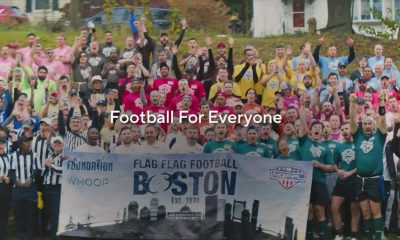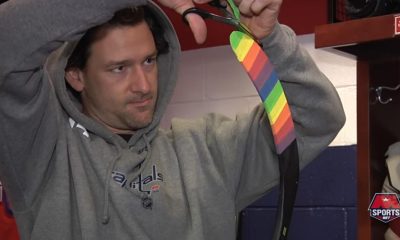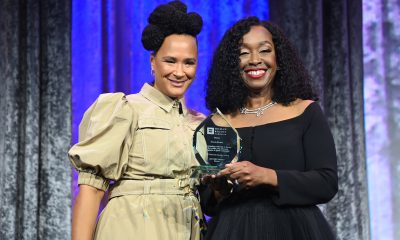Sports
‘They’re cowards’ — gay athletes still refuse to come out
‘Big five’ men’s leagues embrace LGBT inclusion, so why aren’t more pros leaving the closet?
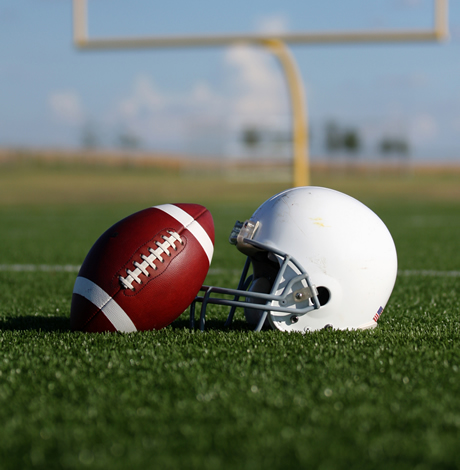
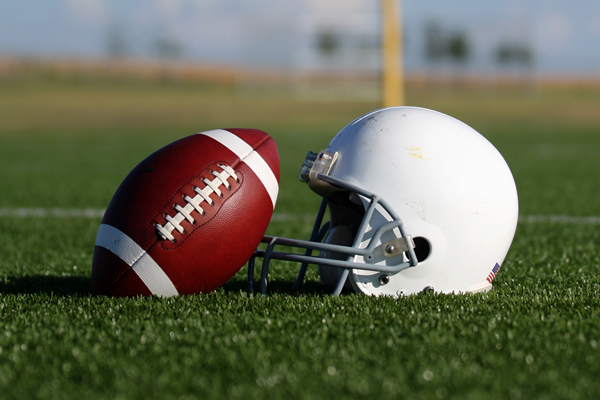 Major League Soccer player Robbie Rogers of the Los Angeles Galaxy and Minor League Baseball player David Denson of the Wisconsin Timber Rattlers, currently are the only openly gay players associated with the five major U.S. sports leagues for men.
Major League Soccer player Robbie Rogers of the Los Angeles Galaxy and Minor League Baseball player David Denson of the Wisconsin Timber Rattlers, currently are the only openly gay players associated with the five major U.S. sports leagues for men.
Yet despite the longstanding absence of out gay players, LGBT sports advocates say the big five leagues in recent years have adopted an unprecedented array of LGBT-supportive policies and outreach programs.
The leagues include Major League Baseball, the National Football League, the National Basketball Association, the National Hockey League, and Major League Soccer. The Washington Blade also reviewed the policies of the United States Tennis Association, which has adopted LGBT-related outreach programs and tournaments.
Although the advocates acknowledge the LGBT supportive policies of the five leagues haven’t had an immediate effect of prompting more gay players to come out, they say the policies and programs have laid the groundwork for gay players to come out in the coming years.
“I would say that almost every league has a non-discrimination policy and every league that we work with has an inclusive policy,” said Wade Davis, a gay former NFL player, in referring to the big five leagues’ LGBT programs and policies.
Davis serves as executive director of the You Can Play Project, a New York-based group that advocates for LGBT inclusion in professional sports. Among other things, he conducts LGBT training sessions on behalf of You Can Play for players, coaches and upper management officials at several of the leagues, including the NFL.
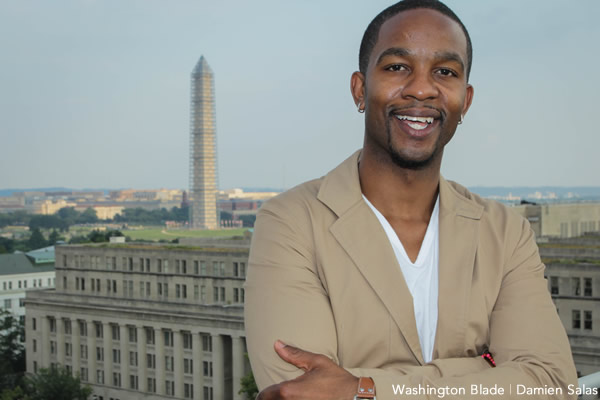
‘I would say that almost every league has a non-discrimination policy and every league that we work with has an inclusive policy,’ said Wade Davis, a gay former NFL player. (Washington Blade file photo by Damien Salas)
He says nearly all of the players and coaches he talks to have expressed strong support for treating a gay player as a fully accepted and respected member of their teams if and when a gay player comes out.
The national advocacy group Athlete Ally, founded by former college wrestler Hudson Taylor, has lined up more than 100 professional athletes who, like Taylor, have become straight allies and “ambassadors” of their respective sports for the purpose of advocating on behalf of LGBT inclusion in sports. Among those who have signed on as ally ambassadors are players in each of the big five major men’s sports leagues, including the NFL, NBA and Major League Baseball. Taylor has said the players who sign on as ally-ambassadors do so with the full support of their teams and respective leagues.
In addition to adopting policies and programs aimed at supporting out gay players, Major League Baseball, the Super Bowl, the U.S. Tennis Association, and the Professional Golf Association recently have expanded their LGBT inclusion policies to welcome LGBT-owned businesses.
In a development that drew attention in the professional sports world, Major League Baseball announced in March of this year that it entered into a first-of-its-kind partnership with the National Gay and Lesbian Chamber of Commerce. The partnership is aimed at helping LGBT-owned businesses to become official suppliers of products and services for MLB.
NGLCC President Justin Nelson said the partnership would enable hundreds of LGBT-owned businesses like construction companies and equipment suppliers to compete for business with the league and its baseball teams.
Nelson has said the partnership with MLB comes after his organization entered into similar partnerships with the NFL’s Super Bowl, the U.S. Tennis Association, and the PGA.
NGLCC has served as a clearinghouse for corporations and local and federal government agencies interested in reliable business suppliers and contractors by certifying LGBT-owned businesses deemed to be capable of providing products and services. The certification qualifies them to compete as an LGBT/minority owned business.
BASEBALL
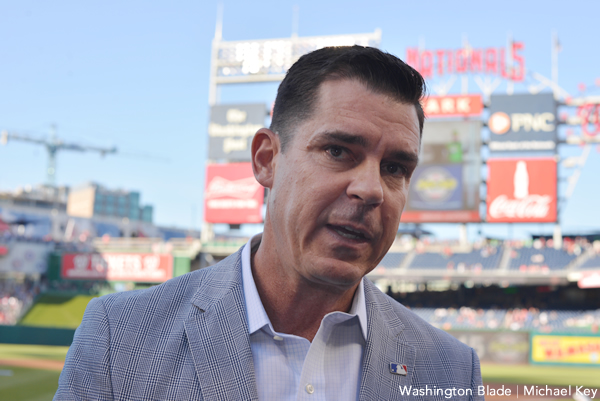
Baseball Commissioner Rob Manfred this year promoted gay former MLB player Billy Bean to the newly created position of Vice President for Social Responsibility and Inclusion. (Washington Blade photo by Michael Key)
LGBT sports advocates point to Major League Baseball as one of the most LGBT supportive of the big five professional men’s sports leagues. In July 2014, then Commissioner of Baseball Bud Selig hired gay former Major League player Billy Bean as a consultant on LGBT issues under the title of Ambassador for Inclusion.
After assessing Bean’s work in organizing and conducting LGBT-related training sessions and meetings with players, managers, and coaches in his first year and a half on the job, Selig’s successor, Baseball Commissioner Rob Manfred in January of this year promoted Bean to the newly created position of Vice President for Social Responsibility and Inclusion.
“In his elevated role, Bean will be responsible for many of the League’s social responsibility initiatives, including oversight of MLB’s Workplace Code of Conduct and anti-bullying programming, while continuing to facilitate inclusion strategies with a focus on the LGBT community,” MLB said in a statement at the time of Bean’s promotion.
“Billy has really taken his role and made it very, very important and special for us,” Michael Teevan, MLB’s vice president for communication, told the Washington Blade. “He’s an amazing human being. We have really enjoyed working with him.”
Teevan said Manfred named another former MLB player, Curtis Pride, who’s deaf, to replace Bean as the league’s Ambassador for Inclusion. Pride isn’t gay but has been an advocate for minorities in sports, and Teevan said he will continue the work Bean started in the ambassador’s position.
Teevan said as far as he knows, David Denson is the only current out gay player in MLB system. He noted that Denson talked to Bean before deciding to publicly disclose he’s gay while playing for his minor league team associated with the Milwaukee Brewers system.
Sean Conroy, another minor league player affiliated with an independent league not part of the MLB system, also recently came out as gay.
Teevan was asked why he thought an out gay player has yet to emerge on a major league team despite the MLB’s LGBT-supportive policies and programs.
“What I would say is we would love it if it happens and if the player wants to do it we tried to build a foundation that would make it comfortable to do so,” he said.
Teevan added, “We have tried to make it clear that baseball is inclusive and that it’s a game for everybody and that we tried to install the attitude that if a player wanted to make such an announcement he would get absolute support and respect.”
FOOTBALL
The NFL’s stated commitment to LGBT inclusion is said to have been first observed in August 2011 when it agreed to a labor contract with the NFL Players Association that added sexual orientation to the league’s existing non-discrimination policy.
“There will be no discrimination in any form against any player by the Management Council, any Club or by the NFLPA because of race, religion, national origin, sexual orientation, or activity or lack of activity on behalf of the NFLPA,” the contract states.
Davis of You Can Play has been credited with playing an important role in promoting LGBT inclusiveness within the NFL since the labor contract was signed, including following two developments that some LGBT activists viewed as signs of homophobia.
In February 2013, three college football players participating the NFL’s annual tryout gathering in Indianapolis, where NFL scouts and coaches evaluate prospective candidates for the NFL draft, told the media they were asked if they like girls. Some criticized the action as an attempt to screen out gay players.
The development prompted New York State Attorney General Eric Schneiderman to invite NFL officials to a meeting where he brokered an agreement by the NFL to conduct year-round seminars for players and officials involved in hiring players that discuss the league’s non-discrimination policies, according to media accounts of the meeting.
Notices of the NFL’s non-discrimination and anti-harassment policies, including the ban on sexual orientation discrimination, would be posted in locker rooms throughout the NFL under terms of the agreement.
Davis said You Can Play quickly approached the Atlanta Falcons with suggestions on diversity training earlier this year after news surfaced that a coach asked one of the players about his sexual orientation.
“They will do about two or three events to make sure their players know and their coaches know that this is something that’s not tolerable and there needs to be education that’s happening on their team,” Davis said.
For the most part, Davis said, NFL teams and players have engaged in positive activities on the LGBT front, including a parking lot tailgate event designated as You Can Play Day with the Tampa Bay Buccaneers. He noted that last year, his group arranged for New York Giants players to visit an LGBT youth service agency in Manhattan, the Hetrick-Martin Institute, where they met and spoke with LGBT youth.
A short time later, We Can Play arranged for a group of about 30 LGBT youth to attend a Giants game, where they were invited onto the field before the game started to visit with the players. Davis said it was part of his group’s ongoing “High Five” events associated with NFL games.
BASKETBALL
Similar to the NFL, the NBA adopted a sexual orientation non-discrimination policy in 2011 but went a step further by announcing that players making anti-LGBT slurs on the basketball court would be subjected to a fine of $50,000.
LGBT sports advocates praised the NBA and its players for expressing strong support for then-Washington Wizards player Jason Collins when he came out as gay in April 2013, becoming the first out gay person in any of the big five men’s sports leagues. Collins, at age 35 and after 13 years as an NBA player with several teams, announced his retirement from basketball in November 2014.
Earlier this year, the NBA, in partnership with the Gay, Lesbian and Straight Education Network, embarked on a campaign to sell LGBT Pride Month T-shirts in which the logo of every NBA team was altered to show a rainbow design. The NBA donated the proceeds from the sales to GLSEN, which advocates for LGBT youth in the nation’s schools.
“Support from professional sports for LGBT people has been one of the biggest cultural developments in the past five years, and the NBA has consistently led the way,” GLSEN Executive Director Eliza Byard said.
The NBA was further praised by GLSEN and other LGBT advocacy organizations last month when it announced it was withdrawing its 2017 All-Star Game from Charlotte, N.C., to protest the approval by the North Carolina Legislature earlier this year of an anti-LGBT law known as HB-2.
HOCKEY
The NHL, which has a sexual orientation non-discrimination policy, in 2013, became another one of the big five major league sports for men to enter into a partnership with You Can Play. Hockey officials said the partnership formalized and advanced the league’s existing commitment to inclusiveness in sports.
“The NHL sets the standard for professional sports when it comes to LGBT outreach and we are incredibly grateful for their help and support,” said Philadelphia Fliers scout Patrick Burke, co-founder of the You Can Play Project.
“While we believe that our actions in the past have shown our support for the LGBT community, we are delighted to reaffirm through this joint venture with the NHL Players’ Association that the official policy of the NHL is one of inclusion on the ice, in our locker rooms and in the stands,” said NHL Commissioner Gary Bettman. Bettman was referring to the NHL Players’ Association joining the NHL in its partnership with You Can Play.
Earlier this year, the Edmonton Oilers Community Foundation, which is affiliated with the Oilers team, announced it had become the founding partner of Pride Tape, an NHL program aimed at supporting LGBT equality by asking players to attach rainbow colored tape to their hockey sticks.
“Pride tape is described as a badge of support from the teammates, coaches, parents and pros to young LGBTQ players,” a statement released by organizers of the project says.
SOCCER
Similar to the NHL and other major sports leagues, Major League Soccer has adopted a sexual orientation non-discrimination policy and a partnership with You Can Play. The partnership with MLS and the other leagues involves an agreement where MLS invites a You Can Play representative, usually Wade Davis, to conduct LGBT-related training sessions for players, coaches, and other league employees.
TENNIS
The U.S. Tennis Association bills itself as the “national governing body for the sport of tennis and the recognized leader in promoting and developing the sport’s growth on every level in the United States, from local communities to the crown jewel of the professional game, the U.S. Open.”
The USTA’s website includes a sweeping diversity and inclusion statement adopted in 2012 that calls for “removing barriers to allow us to be inclusive so that tennis reflects all of America.” Although the statement doesn’t specifically mention LGBT people or any other minority, other sections of the website promote specific LGBT-related programs and tournaments.
Among them is the announcement in February of this year of an expansion of a first-of-its-kind same-gender couple’s tennis tournament launched in Palm Springs, Calif.
“The USTA is proud to recognize this tournament as an official USTA National Championship event,” said Katrina Adams, the USTA board chair and CEO and president, in a statement. “We were thrilled at the success of last year’s inaugural event, and sincerely hope that giving the event National Championship status will allow it to continue to grow and attract even more same-gender couples to the competition,” she said.
Cyd Ziegler, co-founder and co-editor of the LGBT sports news website OutSports, points out that the USTA’s same-sex couples tournaments are limited to the association’s amateur division and that the USTA has no same-sex couples tournaments in its professional tennis division.
“In the history of tennis they’ve never had a ranked [male] player come out publicly,” said Ziegler in referring to professional tennis tournaments.
A USTA spokesperson couldn’t immediately be reached to determine whether the USTA has plans for a professional tennis tournament for same-sex couples.
Why don’t more gay athletes come out?
Ziegler, a recognized expert on LGBT sports issues, and You Can Play’s Davis agree that the big five men’s sports leagues have made dramatic changes in recent years to become open to LGBT athletes. But the two, like many LGBT sports observers, disagree sharply over why more gay athletes don’t come out in those leagues.
“Tomorrow somebody could decide to come out or could be caught literally with his pants down,” Ziegler told the Blade. “All professional sports leagues are quote-unquote ready for an out player. But the gay athletes are just afraid. They’re cowards.”
He added, “The definition of a coward is somebody who lets fear govern his actions. And the gay athletes in the major men’s professional sports today are cowards. And even worse than the athletes that are active in sports are the dozens or hundreds of gay athletes who are retired who won’t come out,” he said.
“I mean, they have nothing to lose in the sports world. And for them to not come out really shows the disdain for the mental health of America’s youth,” especially LGBT youth who look to professional athletes as role models, Ziegler said.
“Cyd is a friend of mine,” Davis said. “But Cyd has never been a professional athlete. And everyone’s coming out experience is very different. Everyone’s experience growing up as a gay person is very, very different,” said Davis.
“So I find it a little disingenuous and a little hard to hear that everyone who’s not out is a coward,” Davis told the Blade.
Davis said he has spoken to closeted gay athletes in recent years and has learned that their individual situations are complex and nuanced.
“You’re not just coming out to your team,” he said. “You have to realize that when you come out on a professional sports team, you still have a family to deal with. So your family situation may be set up in a certain way that you also have to deal with now. Maybe my father is not going to be accepting.”
According to Davis, most of the gay athletes are aware of experiences of other gays who have come out in college sports and the rare cases of someone coming out in professional sports like Jason Collins.
“And what most people don’t understand – I have talked to a lot of closeted players,” Davis said. “And they will tell you as soon as you come out as an openly gay player in a sport you become just that…The focus would be on whether or not this gay person can survive in the locker room,” Davis continued.
“And I don’t know too many athletes I’ve spoken to who want to be engaged in that conversation when at the same time they have to perform on the field or on the court,” he said.
Ziegler praised organizations like You Can Play for working with professional sports leagues to put in place policies and practices that are inclusive of gay players. But he said the sports-related LGBT advocacy groups should also be encouraging more athletes to come out.
“At this point the most important thing any of these advocacy groups can do is identify professional LGBT athletes and work with them to come out publicly. I don’t think any of them are doing that,” he said.
“That’s not our job,” said Davis. “That’s not our responsibility. The responsibility of our organization is to make the culture safe,” he said. “Those players are human beings. They know their lives better than we do. They have agency, which means they have the free will to decide what’s best for their lives.”
Sports
Brittney Griner, wife expecting first child
WNBA star released from Russian gulag in December 2022
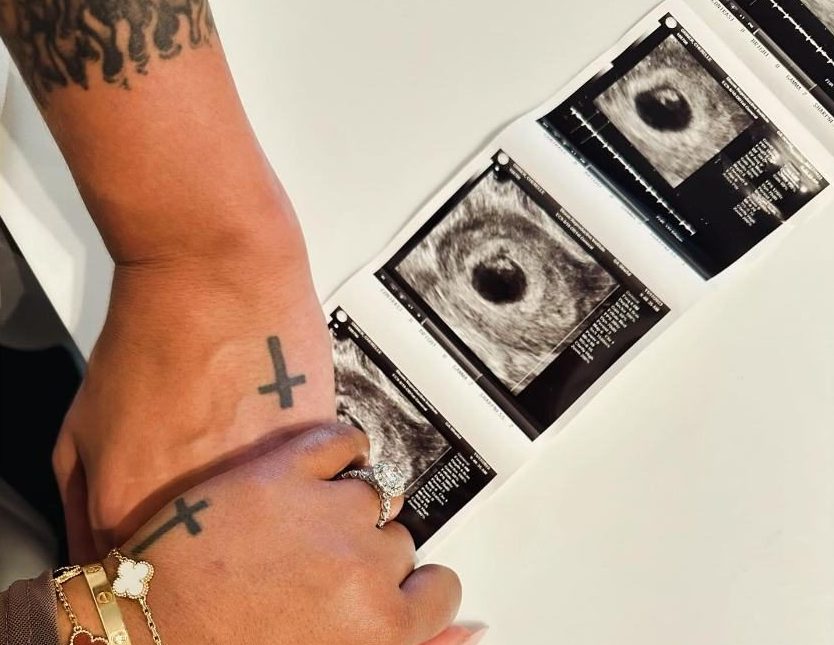
One year after returning to the WNBA after her release from a Russian gulag and declaring, “I’m never playing overseas again,” Phoenix Mercury star Brittney Griner and her wife announced they have something even bigger coming up this summer.
Cherelle, 31, and Brittney, 33, are expecting their first child in July. The couple shared the news with their 715,000 followers on Instagram.
“Can’t believe we’re less than three months away from meeting our favorite human being,” the caption read, with the hashtag, #BabyGrinerComingSoon and #July2024.
Griner returned to the U.S. in December 2022 in a prisoner swap, more than nine months after being arrested in Moscow for possession of vape cartridges containing prescription cannabis.
In April 2023, at her first news conference following her release, the two-time Olympic gold medalist made only one exception to her vow to never play overseas again: To return to the Summer Olympic Games, which will be played in Paris starting in July, the same month “Baby Griner” is due. “The only time I would want to would be to represent the USA,” she said last year.
Given that the unrestricted free agent is on the roster of both Team USA and her WNBA team, it’s not immediately clear where Griner will be when their first child arrives.
The Griners purchased their “forever home” in Phoenix just last year.
“Phoenix is home,” Griner said at the Mercury’s end-of-season media day, according to ESPN. “Me and my wife literally just got a place. This is it.”
As the Los Angeles Blade reported last December, Griner is working with Good Morning America anchor Robin Roberts — like Griner, a married lesbian — on an ESPN television documentary as well as a television series for ABC about her life story. Cherelle is executive producer of these projects.
Next month, Griner’s tell-all memoir of her Russian incarceration will be published by Penguin Random House. It’s titled “Coming Home” and the hardcover hits bookstores on May 7.
Sports
Applause and criticism for Staley’s trans-inclusive stance
South Carolina Gamecocks women’s coach made comments on Sunday
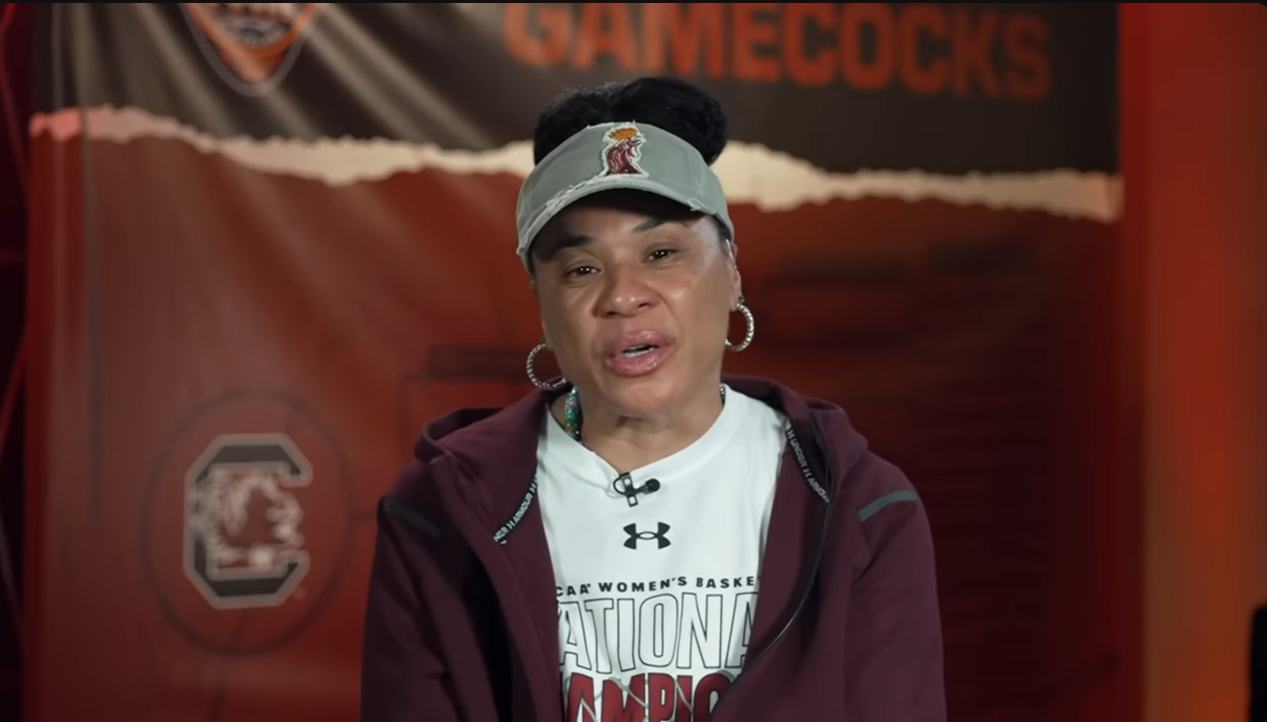
If not for a conservative transphobic blogger, this moment should be a celebration of NCAA women’s basketball coach Dawn Staley and the women of the South Carolina Gamecocks.
On Sunday, they concluded their undefeated season with a decisive win and a championship title. But when Staley faced reporters before that big game, Outkick’s Dan Zakheske asked her an irrelevant, clickbait question about transgender women in sports, referring to them as “biological males.”
Staley could have ignored the question, or stated she had no opinion, but instead the legendary coach offered a crystal clear endorsement of trans women competing in women’s sports, something outlawed in her home state of South Carolina for girls in kindergarten through college.
“I’m of the opinion,” said Staley, “If you’re a woman, you should play. If you consider yourself a woman and you want to play sports or vice versa, you should be able to play. That’s my opinion.”
Zakheske clearly wasn’t satisfied with that declaration of allyship and Staley swiftly cut him off.
“You want me to go deeper?” she asked.
“Do you think transgender women should be able to participate,” he started to say, when the coach stole the ball and took it downtown on a fastbreak. “That’s the question you want to ask? I’ll give you that. Yes. Yes. So, now the barnstormer people are going to flood my timeline and be a distraction to me on one of the biggest days of our game, and I’m okay with that. I really am.”
Staley is herself a Hall of Fame player a leading voice for diversity.
Reaction to her comments were swift, from LGBTQ rights organizations, athletes and inclusion opponents.
“Coach Staley simply spoke the truth that trans women are women and should play if they want,” said Sarah Kate Ellis, president and CEO of GLAAD, in a post on Instagram. “All of us can take a page from Coach Staley’s playbook as a sports leader and as a person of high integrity guided by faith, compassion and common sense.”
A White House pool reporter revealed President Joe Biden called Staley Sunday evening to congratulate her and the Gamecocks on their championship win. But it’s not clear if she and the president, an outspoken supporter of trans rights, discussed her remarks on trans athletes.
A number of Black leaders in the LGBTQ movement applauded Staley for taking a stand.
“Coach Staley has always been a trailblazer, but she’s also shown that true leadership is about advancing justice and equality for everyone,” said Human Rights Campaign President Kelley Robinson. “By expressing her full-throated support for transgender athletes’ inclusion in sports, she’s sending an important message — our shared humanity matters.
“Coach Staley showed courage and vulnerability, in choosing to answer the question and make a powerful statement of support for trans people on one of the biggest days and biggest stages in sports history,” said Kierra Johnson, executive director of the National LGBTQ Task Force, in a statement. “Not only does that make her a leader we can all aspire to like, it makes her a class act. She has etched her legacy in the history books with her play, her coaching, her heart and her smarts.”
In congratulating Staley on her championship title victory, Dr. David J. Johns, the CEO and executive director of the National Black Justice Coalition, also commended her for “her unwavering advocacy and support for transgender people in sports.”
“In a time when transgender athetes face unjust scrutiny, discrimination and exclusion from the National Association of Intercollegiate Athletics, her courage to speak truth to power and in support of inclusion and fairness sets a powerful example for us all, and is a testament to her integrity and compassion.”
The NBJC leader was referring to Monday’s announcement by the NAIA, the governing body of athletic programs at small colleges nationwide, voting 20-0 to essentially ban trans women from competing with other women beginning Aug. 1, as ESPN reported.
“It is a shocking and devastating development that the NAIA, an organization that has done so much to open doors, is now slamming those doors shut on transgender athletes,” said Sasha Buchert, Lambda Legal’s senior attorney and director of the organization’s nonbinary and trans rights project.
“Instead of standing up in support of transgender young people, the NAIA has simply turned its back on them — permanently depriving them of the benefits of competition. Would that they had the courage of victorious University of South Carolina women’s basketball coach Dawn Staley, who didn’t miss a beat in clarifying that transgender women should be able to play.”
However, praise for Staley’s stance was not universal.
Riley Gaines, failed former college swimmer and paid shill for the anti-inclusion organization, Independent Women’s Forum, called Staley “entirely incompetent or a sell-out” on Fox News. “Personally, I don’t think she believes what she said.”
Gaines has turned her fifth-place tie with out trans NCAA champion Lia Thomas into a career as a crusader against inclusion and a former advisor to the presidential campaign of Florida Gov. Ron DeSantis.
Val Whiting, a former Stanford University and professional women’s basketball player, tweeted her strong disagreement with Staley. “A lot of my basketball sisters feel differently but trans women do not belong in women’s sports. It’s not fair nor safe for biological women. There has to be another solution for trans women to be able to compete athletically besides having them compete against biological women.”
A lot of my basketball sisters feel differently but trans women do not belong in women’s sports. It’s not fair nor safe for biological women. There has to be another solution for trans women to be able to compete athletically besides having them compete against biological women.
— Val Whiting (@iamcoachval) April 7, 2024
Zaksheske’s Outkick colleague, anti-trans pundit David Hookstead, also went all-in with a transphobic post.
“Dawn Staley says she supports men who identify as women competing against real women in sports. Her view could literally destroy women’s basketball forever. Why won’t more people stand up for women?”
Dawn Staley says she supports men who identify as women competing against real women in sports.
— David Hookstead (@dhookstead) April 6, 2024
Her view could literally destroy women’s basketball forever.
Why won’t more people stand up for women? pic.twitter.com/2A59KTqvHb
Hookstead then boasted that Staley blocked his account.
Republican South Carolina Congresswoman Nancy Mace retweeted Zaksheske’s account of his interaction with Staley, calling her support of trans athletes “absolute lunacy.” That in turn won praise from Caitlyn Jenner, who retweeted Whiting and posted her thanks to Mace, along with this comment: “There is nothing complicated about this issue!”
What is complicated is that Jenner has never explained why she has competed with cisgender women in golf ever since her transition almost a decade ago.
You’re a hypocrite. pic.twitter.com/42DKwA9jmF
— Art Candee 🍿🥤 (@ArtCandee) April 7, 2024
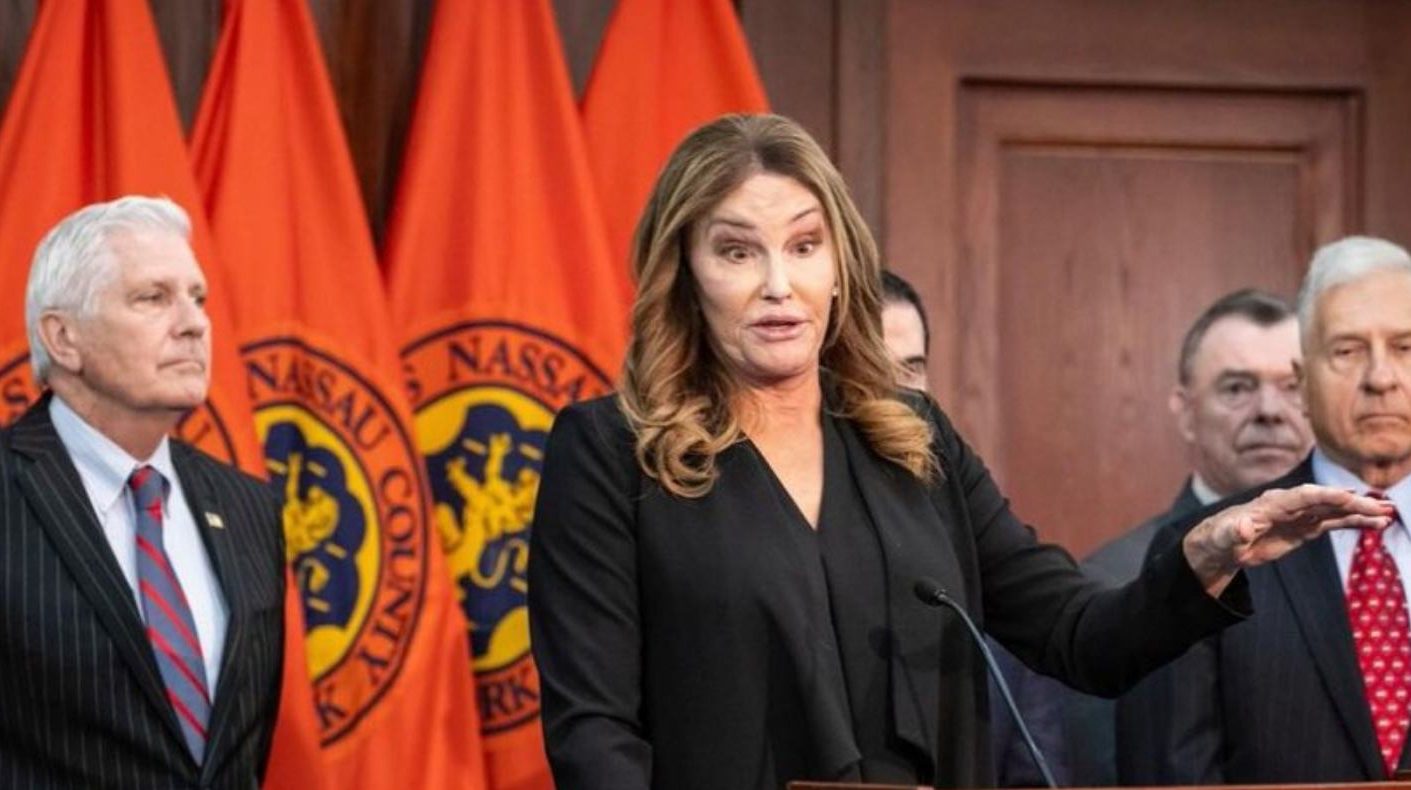
Caitlyn Jenner flew from Malibu to New York this week to join her fellow Republicans in their nationwide quest to keep transgender girls and women from competing in sports with other women.
“Let’s stop it now while we can,” said the Olympic gold medalist, at a news conference carried live by Fox News Channel.
Republican Nassau County Executive Bruce Blakeman organized the event so that Jenner could speak in support of his February executive order banning trans athletes at more than 100 county-owned facilities.
“Trans women are competing against women, taking valuable opportunities for the long-protected class under Title IX and causing physical harm,” said Jenner without providing supportive evidence of her claim. Jenner said the ban would defeat “the woke agenda.”
Her comments drew praise from former NCAA swimmer and paid shill Riley Gaines, who represents the Independent Women’s Forum and has also worked with the failed presidential campaign of Republican Gov. Ron DeSantis of Florida on his anti-trans athlete platform.
We stand with Executive Blakeman as he faces shameful retaliation from @TishJames for merely protecting sports on the basis of sex
— Riley Gaines (@Riley_Gaines_) March 18, 2024
Thanks to you both, @Caitlyn_Jenner @NassauExec !!👏🏼 https://t.co/vAsWfayI7l
“If the left wants to fight this battle on this hill, it’s a losing battle,” said Jenner. “We will win the battle.” She claimed she spoke on behalf of women and girls, contradicting her past statements in support of trans girls competing according to their gender identity and despite the fact she herself still competes in women’s sports.
Shortly after the ban was announced last month, New York State Attorney General Letitia James and New York Gov. Kathy Hochul, both Democrats, denounced it and accused Blakeman of “bullying trans kids.”
James called the order “transphobic and deeply dangerous,” and argued that it violates the state’s anti-discrimination laws. The state attorney general challenged it in court March 1 with a “cease and desist letter,” demanding that Blakeman rescind the order, saying it subjects women’s and girls’ sports teams to “invasive questioning.”
As the Los Angeles Blade reported, Blakeman’s legal team countered with its own lawsuit on March 5, claiming her cease and desist letter violates the 14th Amendment’s equal protection clause.
“Not only was the executive order legal, but we had an obligation to defend it,” Blakeman said Monday.
The order has also been challenged by the New York Civil Liberties Union, which filed suit last week on behalf of a women’s roller derby league based in Nassau County that welcomes trans women and would be barred from using the county’s facilities by Blakeman’s executive order.
Just days before the Long Island news conference, Jenner joined Olympian Sharron Davies, who also campaigns against trans inclusion in sports, for an conversation with a British newspaper, the Telegraph, which has been outspoken against trans inclusion.
They recalled that in their day, tests to determine sex were mandatory in order to compete, and Jenner said she has been “pushing” for sex tests to return to sports, decades after sports organizations around the world abandoned the practice because they were unreliable. “If they continue down this road, it will be pretty much the end of women’s sport as we know it.”
“I can still hit a golf ball 280 yards,” Jenner continued, not mentioning she plays from the ladies’ tee. She did however opine about not being “a real woman,” acknowledging that many trans women disagree with her view.
“They keep saying, ‘Oh, I’m a real woman, I’m a real woman,’ and I’m going, ‘No, you’re not,’” said Jenner. “I will use your preferred pronouns, I will treat you as a female, you can run and dress and do whatever you want, I have nothing against that, it’s fine, but biologically you’re still male.”
She added: “Let me explain — I am biologically male, OK? I’m XY. There’s nothing I can do to change that. If you believe in gender dysphoria, and I think most people do realize it’s not a disease, it’s a mental condition, just like some people are left-handed and some people are right-handed, it’s kind of the way you’re born and I’ve dealt with it my entire life.“
“I consider myself a trans person, I am still genetically male, I changed all of my ID right down to my birth certificate so technically yes, I am female, but on the other hand I know I’m not.”
Related:
-

 Africa4 days ago
Africa4 days agoCongolese lawmaker introduces anti-homosexuality bill
-

 District of Columbia1 day ago
District of Columbia1 day agoReenactment of first gay rights picket at White House draws interest of tourists
-

 World4 days ago
World4 days agoOut in the World: LGBTQ news from Europe and Asia
-

 Arizona1 day ago
Arizona1 day agoAriz. governor vetoes anti-transgender, Ten Commandments bill

